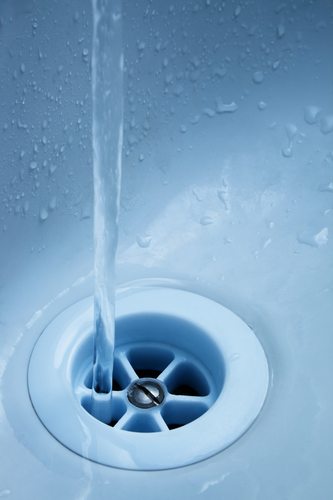What makes water hard?
Water has a nasty habit of picking up magnesium, calcium, and other metal particles. If it picks up enough of them, as 85 percent of the nation’s water does, it becomes hard. Water is defined as “hard” when it contains 121 or more milligrams of those particles per gallon. If 121 milligrams doesn’t sound like much, consider that the average family of four goes through 146,000 gallons of water every year. Every three years, that’s over a half-ton of metal particles dragged through plumbing, with some of it staying behind, building up, and causing extensive (and expensive) damage. Although hard water can be safe to drink, it’s murder on water heaters, other appliances, and plumbing. That’s because those metal particles love to gather into rock-hard piles of gunk in the worst possible places, where sooner or later they’ll cost you money.
How a water softener softens water
For those who are into physics, suffice it to say that water softeners remove hard water particles by means of an ion exchange. For those not into physics, here’s the plain English version. Inside every water softener tank are tiny beads made from specially treated resins. When the resin beads and hard water meet, a trade takes place. The water trades its calcium and magnesium particles for a small amount of salt from the resin beads. Unlike hard water particles, the tiny amount of salt in soft water is friendly to your water heater, washing machine, dishwasher, other appliances, plumbing, showerheads, shower walls, dishes, laundry, and skin and hair. It causes no problems because it stays dissolved and doesn’t pile up. Once the resin beads have given up all of their salt and collected all of the hard water particles they can hold, the water softener flushes them clean. That’s why you need to add salt from time to time to your water softener.
For more on how water softeners work, or to schedule water softener installation, speak to the pros at Kinetico today.

